Glory to Jesus Christ!
Sunday, 7/09/17 5th Sunday after Pentecost
9:00 a.m. Special Intention
10:30 a.m. For the people of the parish
Epistle: Romans 10:1-10
Gospel: Matthew 8:28-9:3, Tone 4
Monday, 7/10/17 Venerable Father Anthony of the Monastery of the Caves, Kyiv
8:00 a.m. no special intention for the Divine Liturgy
Tuesday, 7/11/17 Repose of Blessed Olga (Olha), Princess of Kyiv, named Helen in Holy Baptism
8:00 a.m. +Iwan Sowa (Pan.) requested by Bohdan Sowa
Wednesday, 7/12/17 Holy Martyrs Proclus and Hilary
8:00 a.m. no special intention for the Divine Liturgy
Thursday, 7/13/17 Synaxis of the Holy Archangel Gabriel
8:00 a.m. no special intention for the Divine Liturgy
Friday, 7/14/17 Holy Apostle Aquila
8:00 a.m. no special intention for the Divine Liturgy
Saturday, 7/15/17 Holy Grand Prince Vladimir (Volodymyr), Equal to the Apostles, named Basil in Holy Baptism
9:00 a.m. +Fr. Vladimir Levitzky (Pan.) requested by Joseph M. Levitzky
Sunday, 7/16/17 6th Sunday after Pentecost
9:00 a.m. +Michael and Anna Lipcan requested by Barbara and Patrick Bagley
10:30 a.m. For the people of the parish
Epistle: Romans 12:6-14
Gospel: Matthew 9:1-8, Tone 5
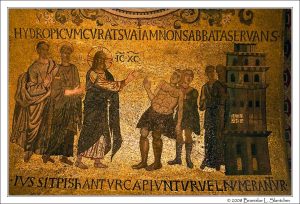 Fourth Sunday after Pentecost
Fourth Sunday after Pentecost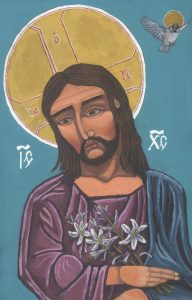 On this Third Sunday after Pentecost, the Church proclaims the Gospel of Matthew (6:22-34). Let us seek the Kingdom of God –together.
On this Third Sunday after Pentecost, the Church proclaims the Gospel of Matthew (6:22-34). Let us seek the Kingdom of God –together.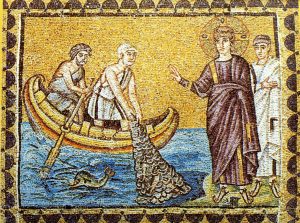 On the First Sunday of the Great Fast, we heard the words from Hebrews, “Therefore, since we are surrounded by so great a cloud of witnesses, let us rid ourselves of every burden and sin that clings to us and persevere in running the race that lies before us while keeping our eyes fixed on Jesus, the leader and perfecter of faith. The whole forty-day journey through the Great Fast, to the Holy Week of our Lord’s Passion, and then through
On the First Sunday of the Great Fast, we heard the words from Hebrews, “Therefore, since we are surrounded by so great a cloud of witnesses, let us rid ourselves of every burden and sin that clings to us and persevere in running the race that lies before us while keeping our eyes fixed on Jesus, the leader and perfecter of faith. The whole forty-day journey through the Great Fast, to the Holy Week of our Lord’s Passion, and then through 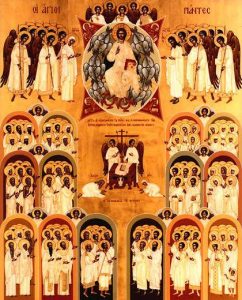 Over the last fifty-some days, we have celebrated the Paschal mystery – the central mystery of our faith, from our Lord’s crucifixion, resurrection, ascension to his sending the Holy Spirit on his followers. This Sunday, after all that has been proclaimed, we add a great “Amen!” “So be it!” This “Amen” will be great only if we make it more than just words but also actions. The Holy Spirit came upon the disciples that they might be witnesses to the Paschal myster
Over the last fifty-some days, we have celebrated the Paschal mystery – the central mystery of our faith, from our Lord’s crucifixion, resurrection, ascension to his sending the Holy Spirit on his followers. This Sunday, after all that has been proclaimed, we add a great “Amen!” “So be it!” This “Amen” will be great only if we make it more than just words but also actions. The Holy Spirit came upon the disciples that they might be witnesses to the Paschal myster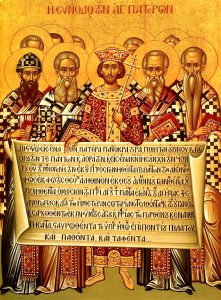 On this Sunday, we commemorate the First Ecumenical Council held in the year 325. This Council defined our faith in Christ, that he was truly God, who had been born of the Virgin Mary as a human being, therefore uniting God and us. The proclamation of faith that they composed is now read at every Divine Liturgy. It was completed in its present form at the Council of Constantinople in 381, with a fuller definition of the nature of the
On this Sunday, we commemorate the First Ecumenical Council held in the year 325. This Council defined our faith in Christ, that he was truly God, who had been born of the Virgin Mary as a human being, therefore uniting God and us. The proclamation of faith that they composed is now read at every Divine Liturgy. It was completed in its present form at the Council of Constantinople in 381, with a fuller definition of the nature of the